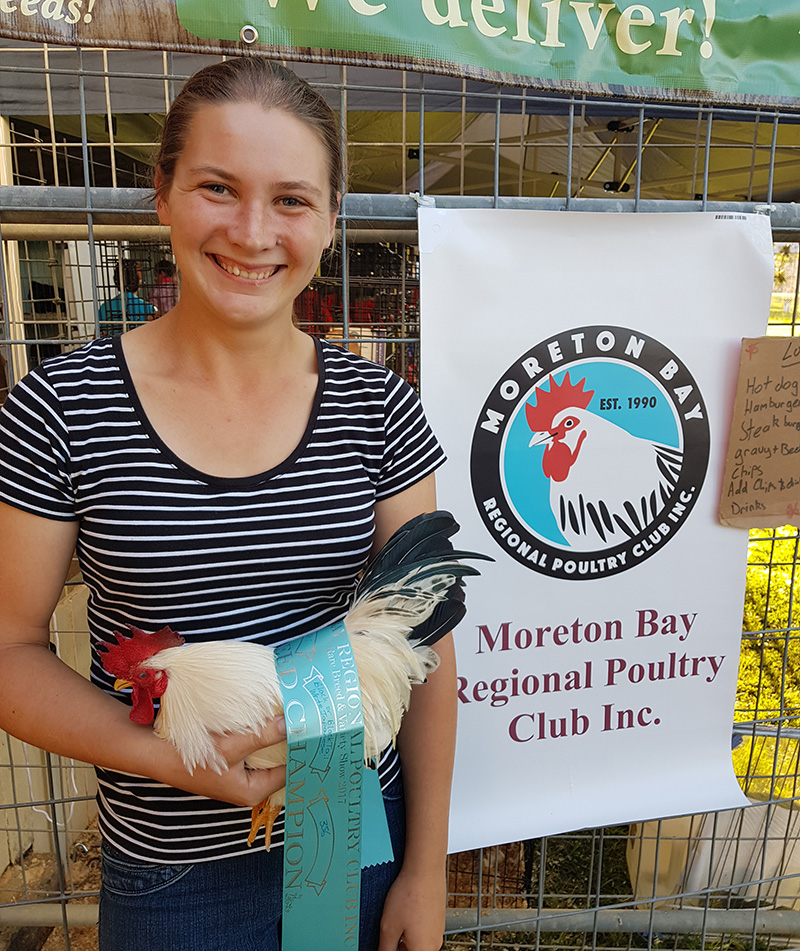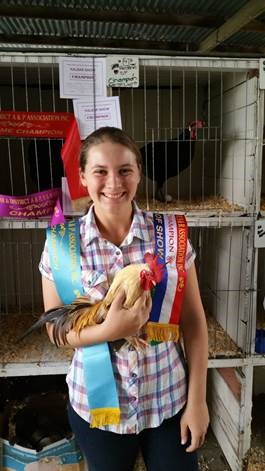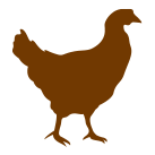Barastoc Poultry Junior Scholarship Profile
Letisha Johnson

Tell us a little bit about yourself and how you became interested in keeping poultry?
I am 17 years old and I am in my first year of studying a dual degree in Agribusiness and Sustainable agriculture at UQ. I live in South-East Queensland and am a proud member of the Boonah Poultry Club. My family had lots of different varieties of poultry growing up but only started with my own purebred chickens a few years ago when a friend convinced me to enter some bantams in the junior section at a local show.
Tell us about your flock! What kind of housing do they have in your backyard?
All of my chickens are housed in pens within about half an acre surrounded by a tall mesh fence we have buried into the ground to keep out foxes and dogs. On one end I have a 3 bay shed for my incubator, brooders and show training pens.
What breeds do you have and what attracted you to them? Do you have favourites? What are their names?
I have mostly Orpingtons, as well as some Brahmas and Japanese Bantams. I love the Orpingtons in particular because they are such big, striking birds but they have the calmest natures, which makes them really easy to deal with in the yard and out at shows. The Brahmas and Japs are more of a challenge, while the Brahmas are quite similar to the Orps, both the Brahmas and the Japs are more difficult to breed to standard, due to quality birds being quite hard to source. I enjoy the challenge of them though and it’s that much more satisfying when they turn out right.
I love all of my birds but if I had to pick favourites it would have to be my blue Orpington hen, named Gwenn, and my black bantam Orpington rooster called Dan.
 Tell us about their personalities, do you have any funny or quirky stories?
Tell us about their personalities, do you have any funny or quirky stories?
All of my birds have different personalities, which are very easy to distinguish if you spend enough time with them, but there are some that still stand out. I find that there are some ‘natural’ show birds which present themselves well no matter what, because they enjoy going out and showing off. The first Japanese I showed was a little black tailed buff I called Felix, who had the biggest attitude for such a small bird. He would follow me around while I prepared the other birds and jump up on the side of the tub unless he was done first. On the other end of the scale there’s my Orpington hens like Gwenn, who fall asleep when I am trimming their toenails.
What are your biggest challenges with them?
So far my biggest challenge has been the heat in summer, it doesn’t affect the Japs much but if they’re not prepared the Orps and Brahmas can really suffer. To combat it I have designed my pens to have as much shade during summer as I can, as well as using fans and cutting them back on fattening foods like corn beforehand.
Which poultry shows have you entered and how did you place?
I have entered local shows whenever I can, as well as shows held by poultry clubs, which usually have a higher quality and number of birds. I have gone as far as Toowoomba and Brisbane, but I also went down to Dubbo for the first time this year for the Orpington National show. Some of my results include Champion AOC Orpington at the EKKA, Champion Breeding Pair at Boonah club show and Reserve bird of show at Kalbar show, as well as many placings in classes and breed champions.
 How do you prepare your birds for a show?
How do you prepare your birds for a show?
Once I have chosen the birds I am going to show, and made sure they are in good condition (no broken feathers etc.), I put them into smaller pens and handle them often if they haven’t been shown much before. Then 3-4 days before the show I wash them all, and scrub their legs as clean as possible – not so easy with the light coloured ones. The day before the show I trim their beaks, toenails and ‘eyebrows’, then put a small amount of oil on their legs and comb. After all this they get loaded into their boxes ready to go for the normally early start the next day, when all I have to do is give them a quick wipe over when we arrive.
Which Barastoc feed(s) do you use?
I mostly use the Darling Downs mix year round, but add breeder pellets during breeding season.
What are your poultry plans for the future?
Hopefully in the future I can continue to improve the quality of my birds, and one day become a Judge myself.

